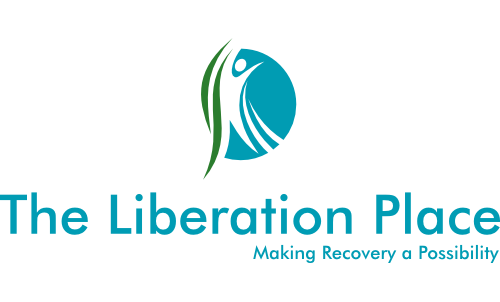The FAST Skill
Improving, and then maintaining, our own sense of Self respect, is a really important part of any recovery lifestyle. It also plays a significant role in the development of Living the Life we Want to Live. Respect is one of the 5 core values that we carry with us throughout the length of our lives. If we’re not living a values-based life, grounded in our own set of authentic core beliefs, effectively setting appropriate boundaries with both ourselves and other people, we're not following the guidelines associated with the fundamental principles of Dialectical Behaviour Therapy. Compromising the goal of Living the Life we Want to Live, will lead to feelings of guilt and shame that just fester under the surface. If we know anything about these uncomfortable and challenging emotional experiences, they often create a desire to escape through the practice of Instant Gratification. In the DBT skills training program, we learn to maintain our sense of Self respect when dealing with Interpersonal Relationships through the use of a skill called FAST.
“Respect is one of the 5 core values that we carry with us throughout the length of our lives.”
~Steven Morris RP.
The FAST Skill is all about effectively maintaining our Self Respect, and it revolves around the Central Question, “How do I want to think or feel about myself after this interaction is over?” Effectively applying our behavioural beliefs regarding the value of respect for ourselves is a fundamental principle of the DBT Interpersonal Effectiveness skill set. Its teachings try to guide us towards acting in a manner that maintains or increases our sense of self-respect during and after any interpersonal connection. At the same time, dialectically speaking, these skills support us in trying to get what we want from our Interpersonal relationships. If building and maintaining our Self respect is the primary objective, the focus is on how to ask for what we want, or how to say no to a request in such a way, that we still respect ourselves afterwards, along with respecting the other persons wants and needs at the same time.
As I said before, maintaining our self-respect is all about maintaining a good relationship with our own values and beliefs. If we struggle with this aspect of Living the Life we Want to Live, then it might be worth asking ourselves some simple questions to take stock of where we’re currently at. For example, do I stand up for my own values or the values of those that I want in my life? Do I find myself putting on a tough attitude in an attempt to avoid humiliating myself, but at the same time, dialectically speaking, I find that I lose my sense of self-respect because I’m acting mean and tough? Do I lie, or do I tell the truth? Do I act competent or incompetent? Remember, effectively maintaining our own self-respect by living according to our authentic core values and beliefs is needed in any interpersonal interaction.
“The common problem that many of us experience when participating in a Dialectical Behaviour Therapy skills training program, is the tendency to fall into black and white, or all or nothing thinking.”
~Steven Morris RP.
The common problem that many of us experience when participating in a Dialectical Behaviour Therapy skills training program, is the tendency to fall into black and white, or all or nothing thinking. On the one hand, we don’t consider how to keep our own sense of self-respect intact in a balanced and effective way at all. This usually means we're living according to the beliefs associated with the schema of Self Sacrifice. Then on the other hand, we can become hyper-focused on maintaining our self respect, taking it to the extremes associated with a Schema of Unrelenting Standards. The goal here, as with all of the work that’s done in any DBT skills training program, is to create balance.
To achieve these goals effectively, Dialectical Behaviour Therapy suggests developing your use of the F.A.S.T skill. As with many of the previous DBT skills, F.A.S.T serves the purpose of reminding you which action to take by utilizing each letter of the word. In this case, F.A.S.T stands for (be) Fair, (no) Apologies, Stick to your values, (be) Truthful. As you are probably picking up, maintaining your Self-respect in an effective way, primarily involves living a values-based life, which in turn, dialectically, is linked to Living the Life you Want to Live. Let’s spend some time going over the implementation of each one in a little more detail.
F = (Be) Fair
The first F.A.S.T skill is to be fair to yourself, and the other person, in any attempt you are making to get what you want. If you are someone who is trying to live a values-based life, which is an essential and fundamental principle of the programming at The Liberation Place, then you will know that it is hard to actually like yourself, over the long haul, if you are consistently compromising your true core values by taking advantage of other people.
A = (No) Apologies
The next F.A.S.T skill is one that if taken at face value can often be completely misinterpreted. In fact, I have actually heard people who have completed a DBT Skills training program make statements like, “well the fast skill told me never to apologize so I am not saying sorry.” Obviously, that is not the intention of this skill, as that would defeat the purpose of living a values-based life. The correct interpretation of this part of the skill is to work on your tendency to over apologize. When apologies are warranted, of course, they are appropriate, and it is the first step in making amends. But many people who deal with the activation of certain schemas in their system, often find themselves apologizing for things they really don’t need to, like making a request, having an opinion, disagreeing with someone, or even for simply being alive.
S = Stick to your values
The third F.A.S.T skill is to stick to your own values. Everything we talk about at The Liberation Place revolves around living a values-based life, so knowing your true core values, as we discussed earlier on in the program, is an essential part of practicing your goal of Living the Life you Want to Live. Whenever you are involved in an interpersonal interaction, it is important to avoid selling out your values just to achieve your objective, particularly if this objective is to keep a person liking you. When sitting with decisions around the actions you want to take, be clear on what, in your opinion, is the moral or valued way of thinking and acting, and hold on to your position. Completing a Pros and Cons exercise with your values in mind, can be an effective way to support your in your decision-making process if you are on the fence about what to do.
T = (Be) Truthful
The final F.A.S.T skill is to be truthful. Honesty is one of the core values that many people carry, so wherever possible, don’t lie, act helpless when you are not, or exaggerate how things are for you just to get what you want. Living a life that has a pattern of dishonesty will eventually, over time, erode your sense of self-respect. Yes, it is true that one instance of dishonest behaviour may not compromise your values, it may even be the case that it is occasionally a necessary thing to do. However, if acting dishonestly is your usual mode of behaviour that’s designed to get you what you want, it will be harmful for your system over the length of your life.
In the PDF at the bottom of this website page, you will find a Worksheet to help you develop your ability to use this skill. If its possible for you to do so, download and complete it for a specific situation. Then use it in conjunction with your mindful Imagery work and the Planning Ahead to Build Mastery skill to rehearse these interactions over and over again.
Download the PDF of this page
Follow us on Social Media





